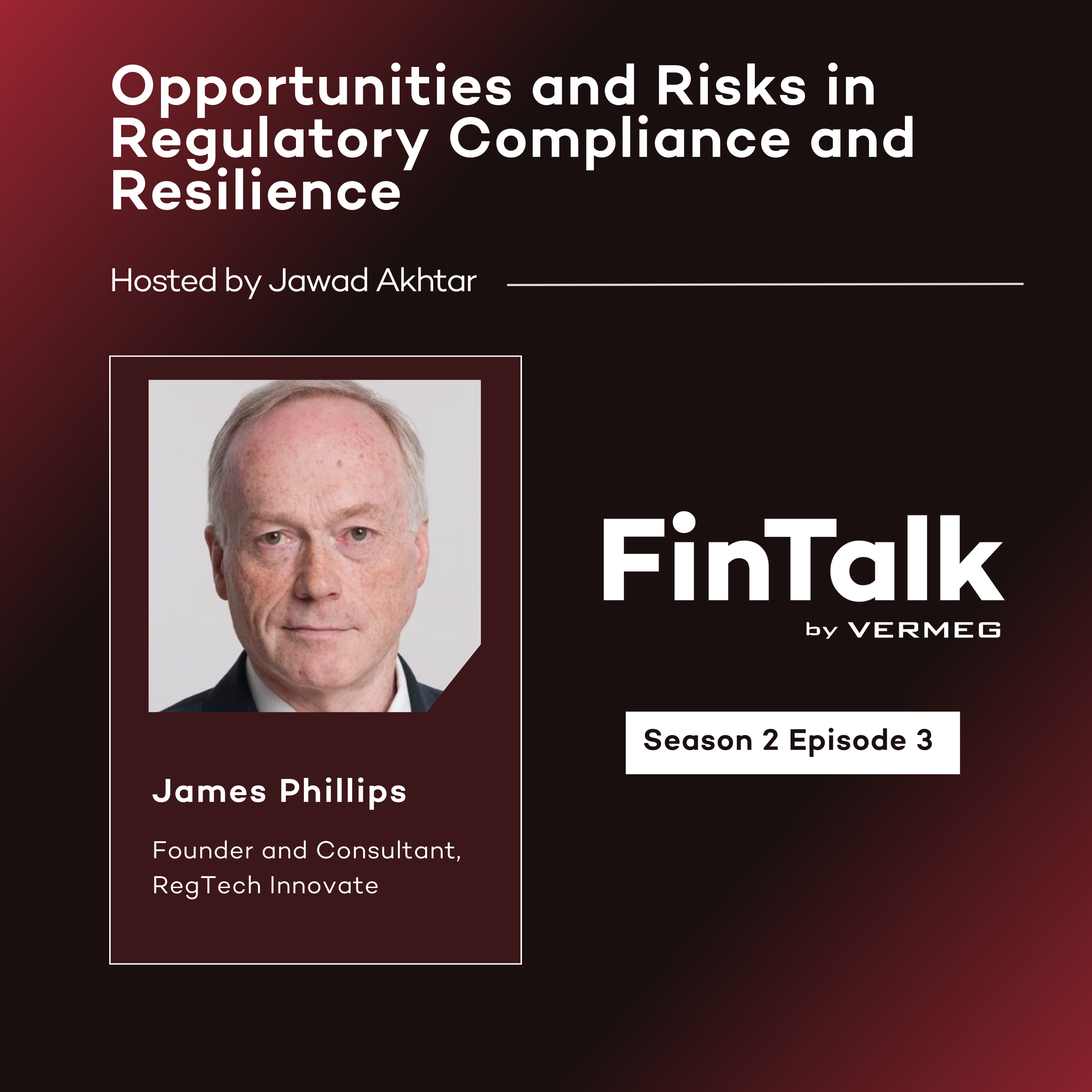
Listen on other Podcast Platforms
Hosted By Jawad Akhtar
Welcome to FinTalk by Vermeg, the leading podcast in FinTech and RegTech that addresses the most pressing topics in the financial industry.
In the third episode of season 2, our host Jawad Akhtar welcomes back James Phillips, Founder and Consultant, RegTech Innovate and ormer Global Head of Regulatory Strategy at Vermeg to discuss the opportunities and risks in regulatory compliance and resilience.
During the episode, James Phillips shares his insights on the critical elements of operational resilience, change detection, horizon management, and regulatory reporting. James emphasises the importance of taking a step back before adopting RegTech solutions and re-evaluating the fundamental processes and data needed for the firm to achieve regulatory compliance and operational resilience.
This episode of FinTalk covers:
VERMEG: https://www.linkedin.com/company/vermeg/
Jawad Akhtar: https://www.linkedin.com/in/jawad-akhtar-313562b/
James Phillips: https://www.linkedin.com/in/jamesphillips2/
James Phillips:
(11:07):
“So, the sinkholes, the headteachers, getting these things embedded, getting risk management against potential failure embedded into the firm’s process, getting regulatory compliance embedded. Whether that’s ESG, or consumer duty, or anything to do with the … Well, so the FCA-related stuff around guidance versus advice, for example, embedded into the way things are done. The cultural impact of all of that are a big part of what I see firms needing to focus on in 2023, over and above, as you said at the beginning of this question, the point things around consumer duty, Basel 3, strong and simple, which are obviously identifiable regulations with dates associated with them.”
James Phillips:
(21:00):
“The third thing is the ability to show from an operational resilience perspective, that your firm isn’t going to get displaced or stopped in some way by an operational event outside of its control, whether that’s a cyber hack, or a contagion run of some form. And then the fourth thing is to operationalize your process so that you’re achieving a senior management green dashboard. It may not be green if things are going badly, but if you’re not getting things through, if data is late, if the number of reports of … Well, just use a practical example, the number of reports of the S and G related measures under ESG, once you’ve got the data on that are starting to go beyond limits, you’d want to know about that at your senior management level. There’s so much to be known and there’s so much that could be operationalized.”
James Phillips:
(24:35):
“Many firms will be doing that … They’ll be looking at, shall we say, moving away from the COVID debt, during which time everything was frozen for a while and now you’ve got to a point where cloud is acceptable. Digitization is happening to an extent, really quite quickly. There are innovations, in-house system, payment systems, legacy IT systems are now in scope for getting rid of, they are paused during … So, all these changes within the operating procedure, the changes in the dating environment, in the data environment, introduce risk as well. They introduce operational risk, the acceptance of hybrid working implies a whole new set of operational tools. Got to stop and think about the whole design before you rush and buy anything.”